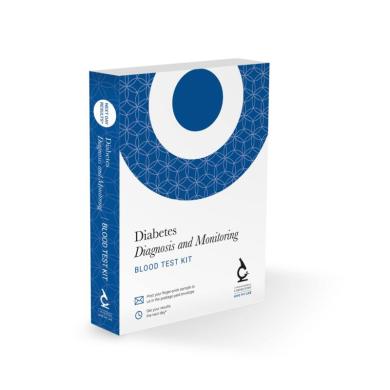Diabetes - Diagnosis and Monitoring (HbA1c)
This test determines whether you have diabetes or assesses how well you’re managing it if you already have the condition.
Diabetes - Diagnosis and Monitoring (HbA1c)

What to Expect from Diabetes - Diagnosis and Monitoring (HbA1c)
Diabetes, if undiagnosed and untreated, can significantly shorten life expectancy and lead to a range of serious complications. Diabetes causes elevated glucose (sugar) levels in the blood, which damages small blood vessels and, in turn, impacts nearly every organ system in the body.
Insulin, produced by the pancreas, helps regulate blood sugar by moving it into cells for energy. However, in Type 2 diabetes, which accounts for 90% of cases, the body becomes resistant to insulin. This type is often triggered by a combination of genetic and lifestyle factors and can be difficult to detect based on symptoms alone. As a result, many people with Type 2 diabetes remain undiagnosed for years, unknowingly causing internal damage before treatment begins.
In contrast, Type 1 diabetes, which makes up about 10% of cases, occurs when an autoimmune process attacks the pancreas, halting insulin production entirely. Both types of diabetes can be managed, but it’s crucial to identify them early.
A blood test, particularly an HbA1c test, is the most reliable way to diagnose diabetes. It is estimated that over a million people in the UK alone have undiagnosed Type 2 diabetes, unknowingly putting their bodies at risk. Additionally, 3.9 million people who have been diagnosed require regular HbA1c testing to monitor their blood sugar levels and assess their management progress.
This test can be life-saving: diagnosing diabetes early or ensuring effective management greatly improves quality of life and longevity. By staying informed, treating, and monitoring diabetes, individuals can make proactive strides toward better health.